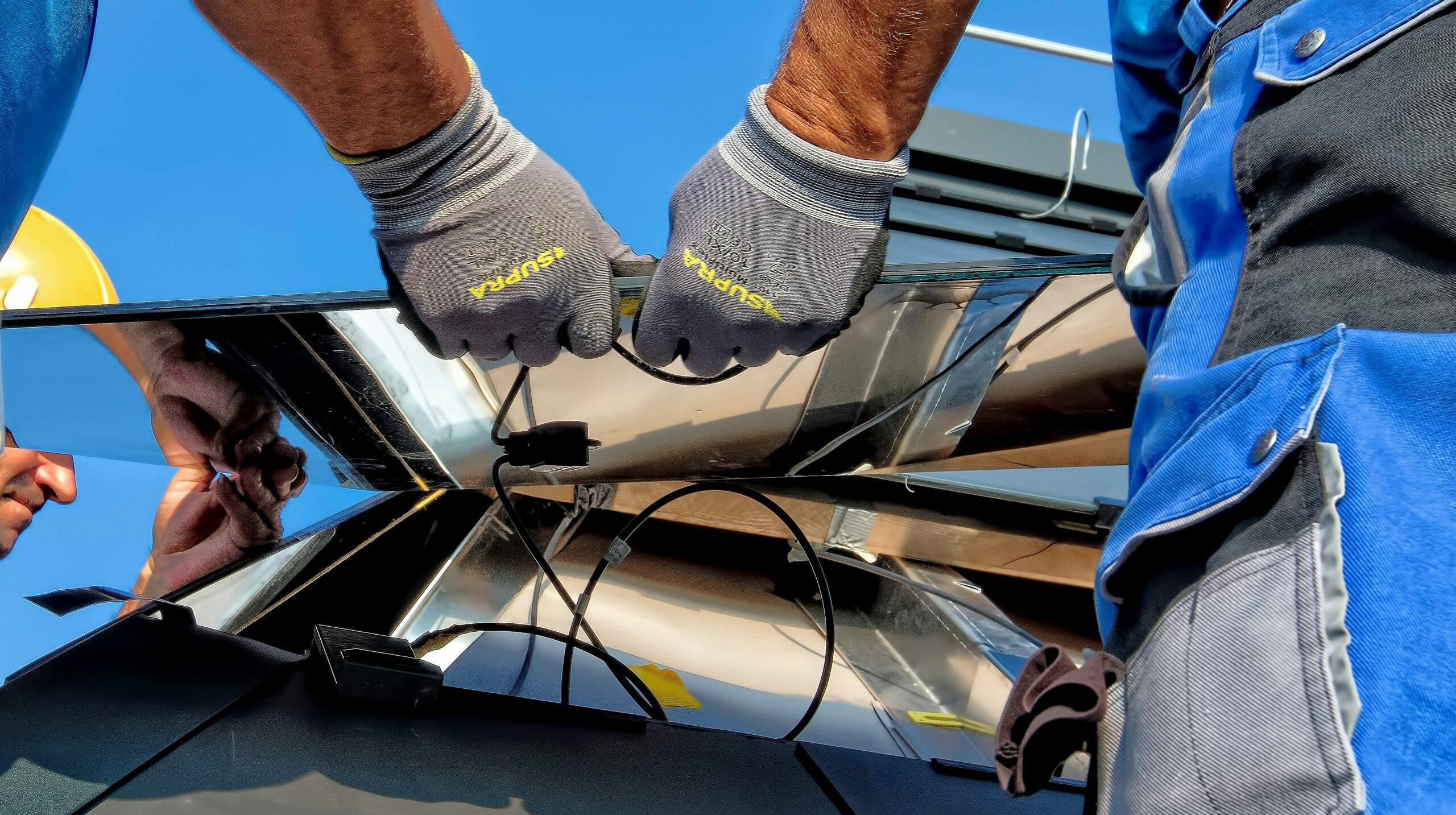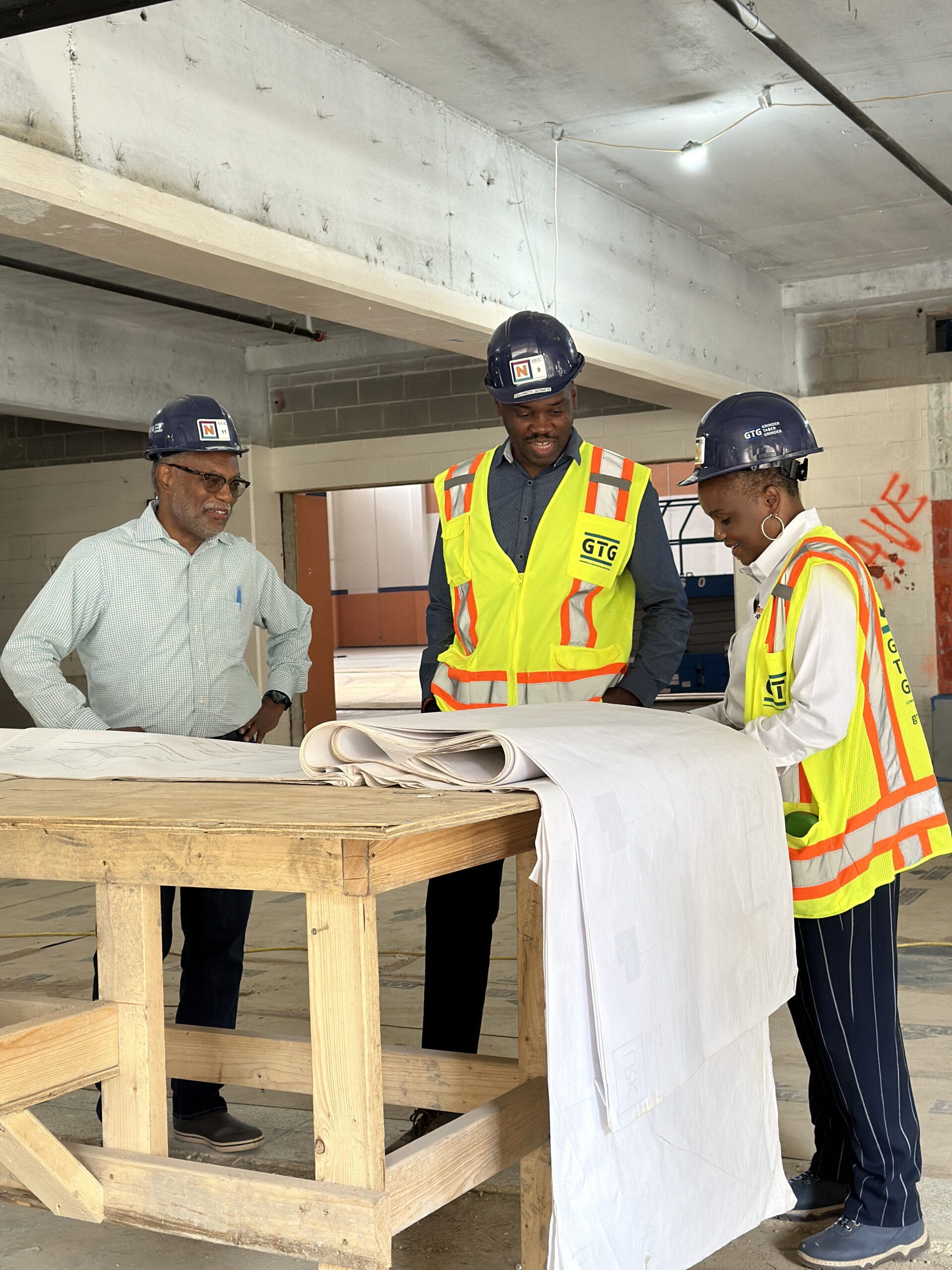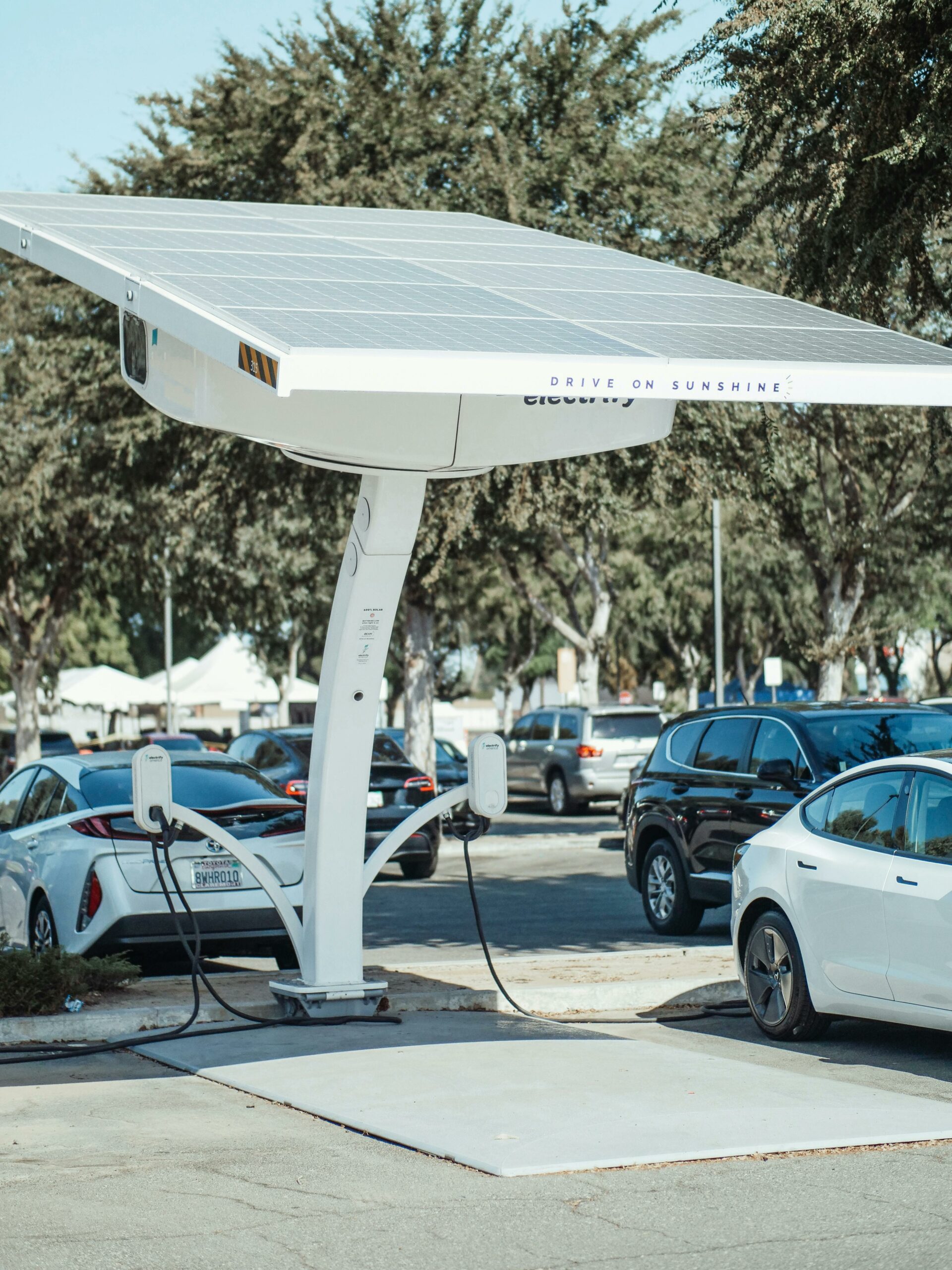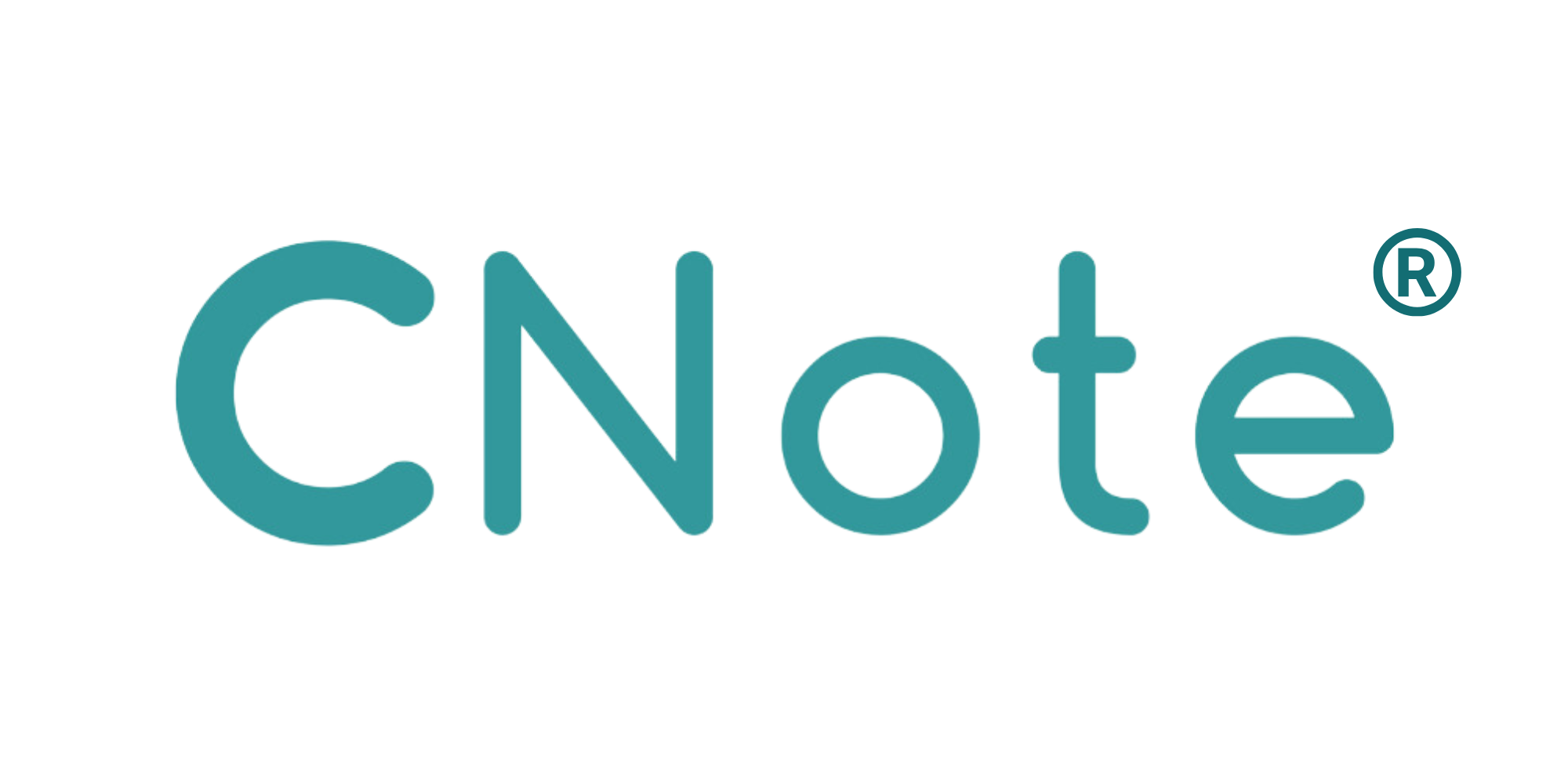When it comes to our shared climate reality, Hope Credit Union’s members are familiar with the ever-expanding narrative. After all, they’re living it. Across the Deep South, summers are getting hotter, power outages are becoming more common, and electric vehicles (EV) are being plugged into more and more homes. Members, however, aren’t just experiencing these shifting dynamics—they’re talking about them.
According to Tyler Archie, the Vice President of Strategic Initiatives and resident subject matter expert on environmental impact for Hope Enterprise Corporation, he and his team are all ears. In fact, explicit member feedback spurred Hope Enterprise Corporation and Hope Credit Union (collectively “HOPE”) to point financial products and community economic development programs towards greenhouse gas reducing technologies and projects. “In focus groups community members tell us how we can help improve their lives and communities,” he said. “They tell us that they are excited about technologies like hybrid cars, EVs and heat pumps; they want to breathe cleaner air; and they also say that they are interested in doing their part to slow climate change. It’s our job to make sure that those financial health and wealth-building opportunities are available and affordable to them.”

That’s exactly what Hope Credit Union has been doing. Since 1994, Hope Credit Union has provided financial services, leveraged resources, and engaged in advocacy that strengthens the financial health and wealth of people in under-resourced communities in Alabama, Arkansas, Louisiana, Mississippi, and Tennessee. For the past 30 years, the credit union has strived to find new ways to address the intergenerational wealth gaps that exist throughout its footprint, whether that’s been through lending for affordable housing, community facilities, or community partnerships.
More recently, the way that HOPE is approaching building generational wealth is through green lending opportunities, including residential and commercial solar financing. For example, on April 22nd, 2024, Hope Enterprise Corporation (HEC), which is part of the broader HOPE family of community development organizations, was selected as one of 60 applicants to participate in the United States Environmental Protection Agency’s (EPA) Solar for All program. The EPA awarded HEC a state-level award for $93,670,000 in Arkansas and $62,450,000 in Mississippi. According to the EPA, the $7 billion program will create new or expand existing low-income solar programs, which will enable more than 900,000 households in low-income and disadvantaged communities to benefit from distributed solar energy. More specifically, these programs will further the Greenhouse Gas Reduction Fund’s objectives by reducing greenhouse gas emissions while lowering electric bills for overburdened households in 25 states and territories that have never had statewide low-income solar programs before.

That includes Arkansas and Mississippi, where HEC was selected to deploy state-level, Solar for All awards. HEC’s Solar for All proposal included financing models for solar and battery storage on single-family homes and multi-family affordable housing, as well as community solar.
All three pathways are designed to achieve monthly utility bill savings of at least 20% for low-income households, while at the same time supporting a job market for solar installers. One goal of the multifamily approach is to lower energy costs for low-income tenants as a way to help those families eventually make the transition from renting to home ownership.
According to Tyler, although the price of power in HOPE’s Deep South footprint is relatively cheap compared to other regions in the United States, the energy burden—or the percentage of a household’s income spent on energy—is among the highest in the country. That leaves families with less savings and vulnerable to unexpected expenses. Solar for All can create an opportunity to put utility bill savings in the bank. “Through Solar for All, we can create $400 in savings that most families are missing to help insulate them from unexpected life events,” Tyler said. “If we can help people achieve financial health, you’ve got the foundation to move into wealth-building opportunities.”

The Opportunity of Climate Change
All of HOPE’s green lending strategies hinge upon innovative financing, strategic partnerships, and its experience and expertise in serving disadvantaged communities. That’s one of the reasons why the credit union became a CNote Climate Cash™ partner. Climate Cash™ is a deposit solution enabling corporations to enjoy FDIC or NCUA insurance and competitive returns while contributing to carbon-reduction lending activities. Climate Cash™ enables corporations to deploy cash in the form of deposits into a network of mission-driven banks and credit unions like Hope Credit Union to combat climate change. Importantly, participating corporations can monitor, administer, and track reporting of their Climate Cash™ deposits through a single interface.
HOPE plans to expand its climate lending beyond solar. The credit union is currently working on creating a home energy efficiency lending opportunity, and it’s preparing to pilot an EV-lending program. According to Tyler, the future value of EVs goes beyond transportation. That’s because EVs, as he puts it, are “massive batteries rolling around on wheels.” By bringing EVs into the affordability conversation for its members, Hope Credit Union members will have the ability to bolster resiliency efforts in a part of the country that’s already experiencing power outages associated with stronger and more unpredictable weather patterns.

Tyler views the transition to sustainable energy as both a crisis and as the wealth-building opportunity of a generation. For him, it again goes back to what HOPE members are already saying: EVs are more fun to drive, heat pumps are nice to have, and the future can be better. Tyler compares the potential of consumer finance to unlock consumer demand to that of General Motors’ first automobiles and Apple’s iPhone. “Financing is the thing that can really unlock consumer behavior,” he said, “and the American consumer can dramatically accelerate climate change mitigation efforts if the financing is done right. I think that’s what we’ll see: market demand and people’s interest in enjoying both a higher quality of life and financial savings that result in adoption of sustainable technologies and a path for financial health and wealth in our low-income communities.”
Learn More:
- Climate Cash™ is enabling corporations to enjoy FDIC or NCUA insurance and competitive returns while supporting carbon-reduction lending activities.
- Hope Credit Union, a certified Community Development Financial Institution (CDFI), is dedicated to enhancing financial stability and fostering economic growth for individuals and families in underserved communities across the Deep South. Since 1994, Hope has provided vital financial services, leveraged resources, and engaged in advocacy to strengthen the financial health and wealth of people in under-resourced areas.

